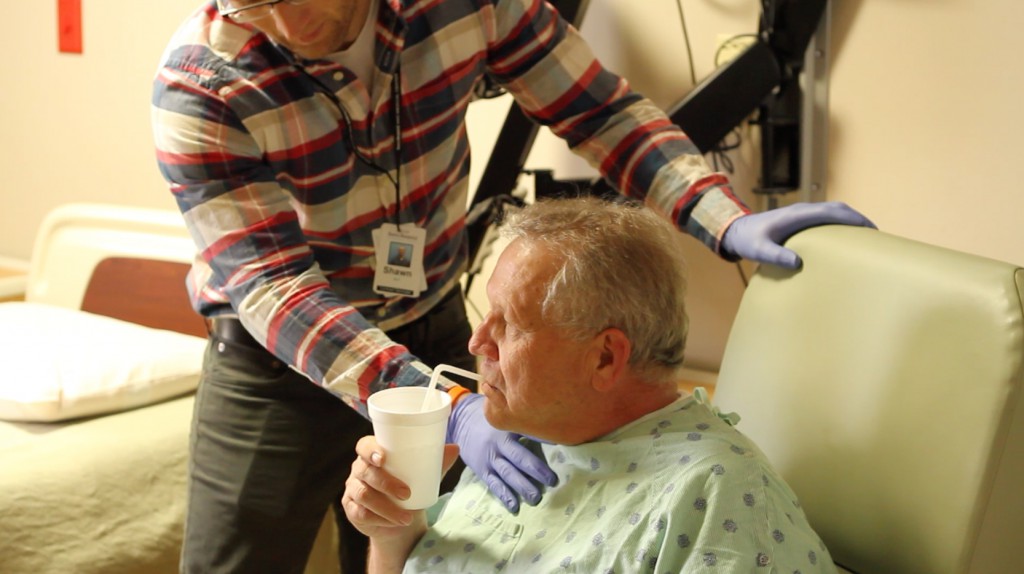Adults can face a lot of challenges with communication and their speech. However, since speech therapy is often thought of as something for children to help them overcome a speech impediment, many people don’t realize adult speech therapy both exists and can help them. The idea that you can be too old for speech therapy and that once you’re fully grown, you talk how you talk, isn’t true. Adult speech therapy can be very effective for any speech-related issue you may be facing.
There’s never any shame in reaching out for help when you need it. Adult speech therapy exists to ensure that people of all ages can get the help that they need in order to communicate more clearly and work through speech issues. Here’s what you need to know about adult speech therapy, issues adults see speech therapists for, and how effective adult speech therapy can be. Let’s dive in!
Issues Adult Speech Therapy Can Help With

Many speech problems can begin in childhood, it’s true. However, left untreated, these can extend into adulthood, impacting your ability to communicate with others. Additionally, adults can suffer from speech or language disorders that emerge over time.
Adult speech therapy can help with a whole host of speech-related issues, such as:
- Speech impediments
- Difficulty thinking of or pronouncing words
- Wanting to neutralize an accent to be better understood
- Voice disorders
- Stuttering and fluency disorders
- Speech clarity
- Aphasia and stroke rehabilitation
- Poor vocal quality
- Rapid speech with mumbling
- Speaking either too softly or too loudly
- And more
What Conditions Can Cause Adults To Need Speech Therapy?

Perhaps you spoke clearly and confidently as a child, but then something happened that affected your speech. This commonly occurs as a result of an injury of some sort, such as a stroke, a brain injury, a jaw injury, and more.
Some of the conditions that can cause an adult to seek out speech therapy include:
- Cognitive communication disorders. This is when you struggle to communicate as a result of suffering a brain injury or a neurological condition.
- Expressive disorders. These are when you struggle to express yourself and convey information in the way you want to, as can happen after experiencing head trauma or as a result of a developmental impairment.
- Fluency disorders. This is when your speech is interrupted by stuttering or cluttering (quick talking that blends words together).
- Receptive disorders. This is when you struggle to understand what people are saying to you, usually as a result of a head injury, autism, or hearing loss.
- Resonance disorders. This is when something obstructs your airflow in your nasal or oral cavities, which can happen with neurological disorders and issues such as cleft palate. These can alter the quality of your voice.
There are many different reasons why someone would seek out adult speech therapy. Impaired speech can greatly impact your self-esteem and confidence. Fortunately, adult speech therapy can help you improve your speech and language skills, and ergo, your confidence and quality of life.
How Does Adult Speech Therapy Work?

Adult speech therapy starts off with an evaluation to uncover the cause of your speech issues, to assess your current issues, and to learn what your goals are. Depending on your specific issues and goals, the therapy you receive can vary.
In general, speech therapists use the following treatments:
- Target selection. This is when you target specific sounds you’re struggling with, such as if you have a lisp.
- Contextual selection. This is when you break up works into smaller parts in order to relearn word structure, as can be necessary after a brain injury.
- Contrast therapy. This is when your speech therapist has you practice pairs of words that sound similar so that you can make distinctions between them.
- Oral-motor therapy. This is when you work with your facial and oral muscles in order to improve your speech and language skills.
Your speech therapist will come up with a treatment plan specific to you and can modify it to your needs as they evaluate your progress.
How Long Does Adult Speech Therapy Last?
It’s common for people to assume that the more severe the speech issue, the longer you’ll be in speech therapy. However, speech therapy very much depends on you doing the exercises and practicing what your speech therapist asks you too outside of your sessions. If you only practice your skills in your sessions, you will still improve, but it will take you much longer. How long you are in speech therapy depends on how dedicated you are to putting in the work.
It is important to note that while speech therapy can improve your speech, it cannot always resolve all speech issues. However, it can help with your communication and boost your confidence.
Are You Looking For Adult Speech Therapy?
Wasatch Peak Physical Therapy provides expert speech therapy sessions that can help you communicate with and understand the world better. To learn more about speech therapy or to schedule an appointment, please don’t hesitate to contact us today!

Leave a Reply